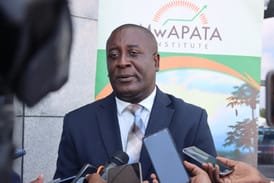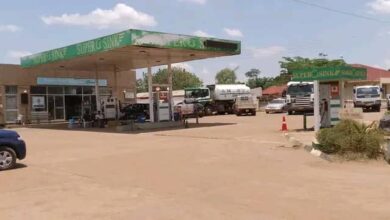National
Malawi loses 30 tonnes of topsoil per hectare per year due to soil erosion

By Chisomo Phiri
A Malawi Position Paper and Action Plan on Fertiliser and Soil Health by Mwapata Institute has shown that Malawi is losing an estimated 30 tonnes of topsoil per hectare per year due to soil erosion.
The paper, presented to stakeholders in the agriculture sector in Lilongwe on Wednesday for validation, further shows that this is an increase from the 26 tons per hectare per year reported between 2010 and 2017 and the 29 tons per hectare per year reported in 2014.
It is estimated that soil erosion alone contributes to Malawi losing over 108 g/ha of Nitrogen, 350 g/ha of available phosphorus, and 16.6 g/ha of exchangeable Potassium annually.
This is equivalent to a loss of 3 percent of a 50kg bag of NPK fertilizer per hectare annually or 2000 metric tonnes of NPK fertilizer, cumulatively on agricultural land.
“Other factors leading to poor soil fertility and soil health in Malawi include soil degradation, declining soil organic matter levels, low nutrient inputs to the soil, burning of crop residues, soil acidity and poor land management practices,” reads the Action Plan in part.

Mwapata Institute chairperson of the board of directors Richard Mkandawire stressed the urgency of addressing the issue.
“This is a serious issue that must be addressed quickly and we are calling on the government to intervene,” he said.
Mwapata Institute is an independent policy think tank in Malawi, established to inform and guide national policy issues related to agriculture, natural resources, and rural transformation.
Its mission is to conduct independent, objective, empirical research aimed at providing innovative and practical recommendations to inform agricultural sector policies in Malawi.
The aim of the Institute is to accelerate the adoption of effective Malawian-led policies and programs to drive broad-based agricultural transformation, diversification, and improved smallholder incomes and nutrition in Malawi.
The Institute plays a leading role in identifying strategies that will improve the investment climate, and promote agricultural productivity, diversification, and commercialization.
The Institute is affiliated with the National Planning Commission (NPC) and the Lilongwe University of Agriculture and Natural Resources (LUANAR) and is currently receiving technical and institutional
development support from Michigan State University.






